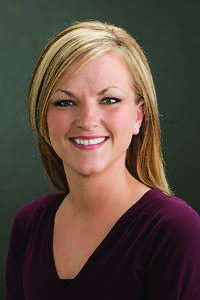University Continuing to be Named a Military Friendly Institution
Latest of four different recognitions

Cross-Shindler
March 26, 2014
For the second year in a row, UW-Eau Claire has been included in the Military Advanced Education’s 2014 Guide to Military-Friendly Colleges and Universities.
The university has been included in other publications for its military services, including being named a Military Friendly School by Victory Media for the fifth year in a row this fall, and also made Military Times’ “Best for Vets: Colleges 2014” list, and was listed as one of the top public universities in the Midwest for military veterans by U.S. News & World Report.
Miranda Cross-Schindler, the university’s military education benefits coordinator, said while there is a trend in higher education to concentrate more on veterans’ needs, there is still large amounts of disparity between institutions.
“I think that we are at the leading the way on a few things,” Cross-Schindler said. “But I’m not afraid to say ‘I don’t know’ or ‘we don’t have this’, or to look to other schools’ best practices to ensure that we stay in line with the changes that are going on.”
Cross-Schindler said the university is staying well-ranked for veteran students because of continuing efforts to create a community for them within the school.
The veteran’s center in Scholfield, the veteran’s club and focused academic help for veterans are examples of the development that has been going on within the past four years.
Student veteran Kyle Braun said this has all been part of an effort by Cross-Schindler, working with other people at the university to get funding and provide assistance to the veterans.
“Anything we need or anything that comes up, we can get help with,” Braun said.
He said he has seen those efforts in action and noted the change and development of the veteran center over time and services offered. Services now include printing and work areas, as well as a place for veterans to socialize.
Increased interaction between veterans and administration and training the faculty and staff are what help keep the changes continuing, and making the school more helpful for veterans in the future.
Beth Hellwig, vice chancellor of student affairs, said the coordination between student affairs and academic affairs is essential to continue to be regarded as a military friendly school.
Besides the Veteran’s Center and Veteran’s Club, there is also more targeted support for them through the Counseling Services, the Services for Students with Disabilities Office and the Veterans Advisory Committee, which reports to the provost and consists of student veterans and staff members from offices that provide veteran services.
Hellwig said the administration’s concentration has been on reaching out to veterans with veteran-specific programs.
“The administration has made a concerted effort to recognize the service that our military veterans have given to our country,” Hellwig said, “and feel that higher education needs to do our very best to help them be successful.”
Cross-Schindler said the most important aspect of the efforts to make a good environment for veterans has been the support of the administration, and the ability to work with them on an individual level.
“Asking the students what we’re doing and what we’re not doing is something I do regularly,” Cross-Schindler said. “And then looking at other schools to make sure that we’re doing as much as we can be.”


